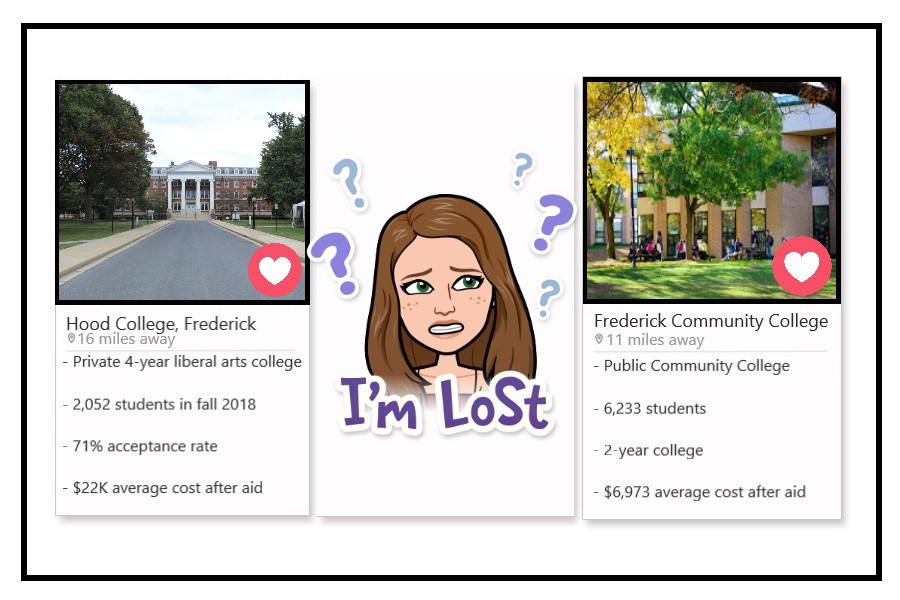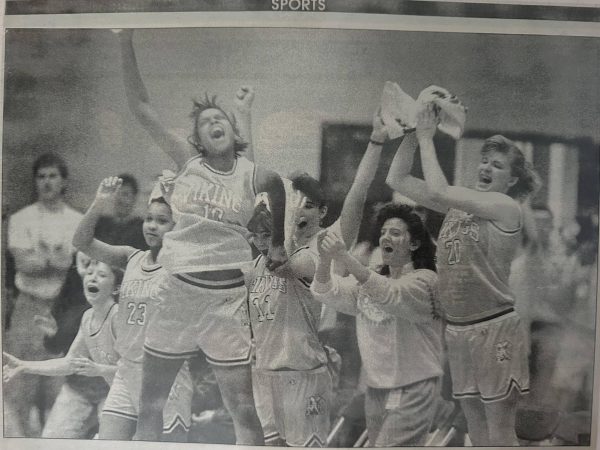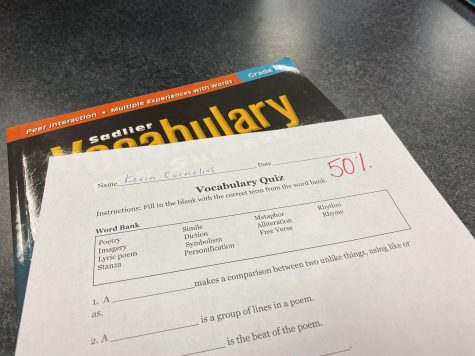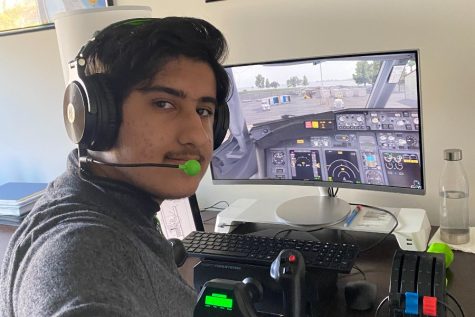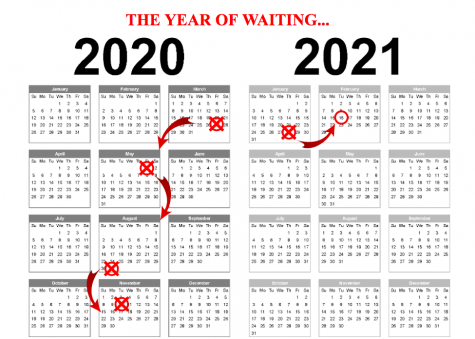Class of 2021 tries to “unmask” the college application process during a global pandemic
SAT cancellations, virtual open houses, Zoom interviews, and more complicate the application process for the Class of 2021.
Due to the widespread restrictions as a result of COVID-19, many Class of 2021 students feel that their college search process is similar to swiping right or left on a dating app.
What about the Class of 2021?
With COVID-19 restrictions, the college touring process feels a lot like swiping left or right on a dating app to find the perfect match.
A student’s senior year is supposed to be a time of finishing tours and applying to colleges; however, with the entire process moving to online platforms, the Class of 2021 is left with professional pictures of campuses and piles of unopened brochures that say, in essence, “Pick me! Pick me!”
The Class of 2020 faced a similar problem in the spring, which caused many students to choose “no choice” and take a gap year or change four-year plants to attend community college in the fall.
Emily Webb, a member of the Class of 2020, chose to attend Frederick Community College after learning that her freshman year at UMD would be online.
“I chose FCC partially because my intended school didn’t offer everything I wanted due to COVID, but mostly just to save some money. If there was not a pandemic, I would have attended the University of Maryland,” said Webb, “At first I was a little disappointed; I was excited to move out and start a new chapter in my life. Now that I’ve settled in the new school year, I’m actually really enjoying being in Frederick.” Webb continues to work her part-time job and complete her classes. She hopes to attend UMD when the campus is fully open.
COVID-19 has forced many colleges to convert classes to a virtual platform or enforce strict protocols for class size and access to campus buildings. Due to these precautions, many argue that the price-tag is no longer worth the experience.
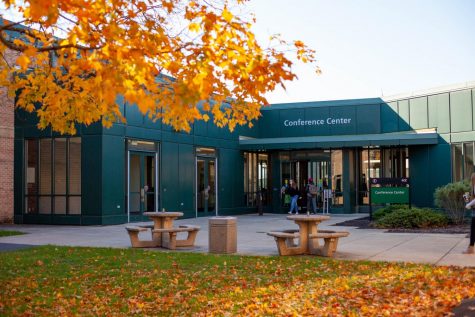
FCC Communications Coordinator, Caroline Cole, urges students to think carefully about expenses.
“Consider cost. You can receive a quality education at FCC for a fraction of the price of a four-year,” said Cole.
Although virtual learning is the focus of almost every college in the United States, FCC is also offering some in-person instruction for a fraction of the cost of a four-year school.
“For courses that require face-to-face instruction, both our main campus and Monroe Center are following CDC guidelines that include requiring students and employees to wear a mask when on college grounds and following all physical distancing guidelines,” said Cole.
Hood College, a private liberal arts college in Frederick, has seen steady enrollment, which proves that providing a distance learning option, as well as some in person hybrid classes, can go a long way. Hood College is also implementing protocols to keep students and staff safe.
“Hood has enacted several measures to help prevent and curb the spread of COVID-19. Besides our online and hybrid courses that we have started to offer, we have limited visitors to campus, require masks, staff and faculty took their pledges, and we have testing done weekly on samples of those on campus. We also have quarantine locations for students and a support team to help us through,” said Alisan Imhoff, a Hood College admissions counselor.
Imhoff believes that the Class of 2021 should not let the virtual learning platform deter them from going to a school where they feel most connected.
“Go where feels like home. Many students think that because classes are online, they should have a cheaper option to take classes and will seek alternative schools which might not be the best fit for them. Pick a college where you feel connected, even if you’ve never set foot on campus. Are you talking with the faculty and staff? Are you a name and not a number? Things are different everywhere, so go somewhere you know you will be supported as things change,” said Imhoff.
Although students aren’t able to visit most colleges in person, several colleges are holding online “Open Houses” for prospective students. Sydney Rossman, a member of the Class of 2021 at Slippery Rock University, was a part of the Zoom open houses that SRU made available for her major in the spring and this fall. Although virtual options are available, Rossman believes that the Class of 2021 is missing out on key in-person connections.
“I feel like being in person [for campus tours] is better than virtual because you get to personally talk to the professors and current students. With virtual open houses, you miss that connection. Some of the majors are really hurting due to the virtual open houses because many get more foot-traffic in person,” said Rossman.
Similar to departmental programs struggling to attract students, prospective students are unable to choose their major areas of study.
Elizabeth Rajnik, Class of 2021, is struggling to decide between her two potential majors: Occupational Therapy and History.
“I already have two set ideas of what I want to major in, but I do feel that it is way harder to get a feel for the programs and what school is best for your field of study. I just feel like it’s harder for the schools to showcase their fields of study and present what they have to offer,” said Rajnik.
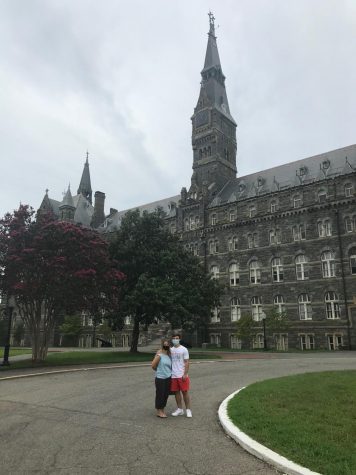
Some students, however, are visiting colleges across the East Coast from a distance. Senior Frank Dickenson Jr., and his family have gone on a few road trips to visit colleges since Dickenson wasn’t able to attend any open houses during the spring.
“My parents and I took road trips to go see colleges so that we could compare the campuses. I don’t have an older sibling to use as a reference, which makes the college process more difficult,” said Dickenson.
In September, Dickenson and his family have visited Johns Hopkins, Duke, Virginia Tech, North Carolina State, and Georgetown, among others.
“We walked around the campuses and kept distance from other students. We also made sure to wear masks. The only interior I saw was at Georgetown. When I went around universities in Virginia and North and South Carolina, I was not able to see the interior of the schools, which made me feel that I couldn’t get a complete feel for the colleges,” said Dickenson.
Making a family road trip out of the college touring process is a great opportunity, but families have to plan to finance these trips, and COVID-19 restrictions make it difficult to visit some states.
Class of 2021 member Tabitha Knedeisen said, “I think that the college search has been really difficult since quarantine started because I haven’t been able to view any campuses. I also think the application process is a lot harder since you have to choose whether to apply test optional or not because I have yet to take the SATs,” said Knedeisen.
Some may believe that not having to take the SATs is a blessing in disguise, but for many students who are hoping to earn scholarships from their test scores, all of the cancellations are a nightmare.
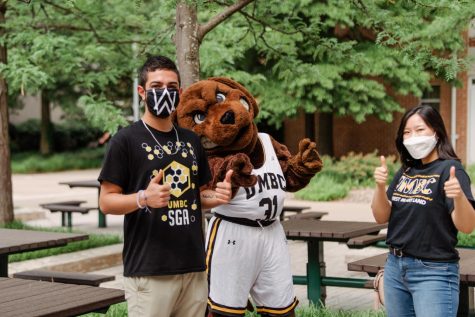
University of Maryland Baltimore County admissions counselor, Hana Albrecht, offers advice to the Class of 2021 when navigating this difficult time without an SAT score.
“I do not believe [the lack of SAT scores will affect merit scholarships given out]. Our approach to evaluating applications is holistic and – most importantly – additive. Each element of your application accumulates to help us understand who you are as a prospective student and scholar. We will evaluate you based on what we know about you, as opposed to what we don’t know about you,” said Albrecht.
For most, choosing a college is a life-changing decision because the choice sets the stage for the next four years–and a career beyond that. The virtual application and touring processes are just more COVID complications with no good solution.
Your donation will support the student journalists of Linganore High School. Your contribution will allow us to purchase camera/recording equipment and software. We hope to raise enough money to re-start a monthly printed issue of our paper.



